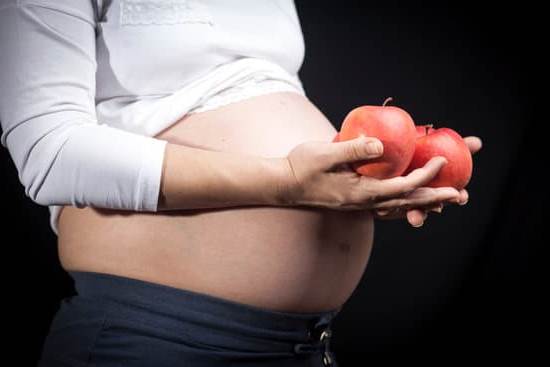When it comes to starting a family or simply being cautious about contraceptive methods, knowing how early to test for pregnancy is crucial. Understanding the menstrual cycle and ovulation is key in determining when is the best time to take a pregnancy test. The menstrual cycle typically spans around 28 days, with ovulation occurring in the middle of the cycle.
Recognizing the signs and symptoms of early pregnancy plays a significant role in determining when to take a pregnancy test. From missed periods to morning sickness and fatigue, these indications can prompt individuals to seek confirmation through testing. There are various types of pregnancy tests available, ranging from urine tests to blood tests, each offering different levels of accuracy based on when they are taken.
The accuracy of pregnancy tests at different time points can vary widely. Factors such as the sensitivity of the test, timing after conception, and individual variations can impact results. Knowing how soon you can take a pregnancy test after conception can provide insight into when you may expect reliable results. However, certain factors like medications or underlying health conditions can affect testing accuracy and should be considered before deciding when to take a pregnancy test.
Signs and Symptoms of Early Pregnancy
Here are some common signs and symptoms of early pregnancy:
- Missed Period: One of the most well-known signs of pregnancy is a missed period. If your menstrual cycle is regular and you have missed your period, it may be worth taking a pregnancy test.
- Implantation Bleeding: Some women experience light spotting when the fertilized egg attaches to the uterine lining. This can occur around 6-12 days after conception.
- Increased Urination: Pregnancy hormones can cause an increase in blood flow to the kidneys, leading to more frequent urination.
It’s important to note that these symptoms can also be attributed to other factors such as stress or hormonal changes. However, if you are experiencing multiple symptoms and suspect you may be pregnant, it’s advisable to take a pregnancy test.
There are also more subtle signs of early pregnancy that some women may experience, such as fatigue, breast tenderness, nausea (morning sickness), heightened sense of smell, and food aversions. Paying attention to your body and any changes it may be going through can help you determine how early to test for pregnancy.
Different Types of Pregnancy Tests Available
When it comes to testing for pregnancy, there are different types of pregnancy tests available on the market. The two most common types are urine-based tests and blood-based tests. Urine-based tests, which can be easily purchased over-the-counter at drugstores, detect the presence of hCG (human chorionic gonadotropin) in the urine. On the other hand, blood-based tests are usually done at a healthcare provider’s office and can detect hCG levels earlier than urine tests.
Urine-based pregnancy tests are convenient and easy to use. They can typically be taken at home as early as a few days before your missed period, although the accuracy may vary depending on how early you test for pregnancy. Blood-based pregnancy tests, on the other hand, can detect hCG levels as early as 7-12 days after conception. These tests are more sensitive and provide accurate results even at very low hCG levels.
It is important to note that the timing of taking a pregnancy test can significantly impact its accuracy. Testing too early may result in a false negative result due to low hCG levels that have not yet built up sufficiently in your body. Therefore, it is recommended to wait until after you have missed your period before taking a pregnancy test for more reliable results.
| Type of Pregnancy Test | Timeframe for Testing |
|---|---|
| Urine-based Test | A few days before or after missed period |
| Blood-based Test | 7-12 days after conception |
Accuracy of Pregnancy Tests at Different Time Points
Why Timing Matters
When it comes to taking a pregnancy test, timing is crucial. The accuracy of the test result greatly depends on when it is taken in relation to conception. Understanding the menstrual cycle and ovulation is key to determining how early to test for pregnancy. It is important to note that pregnancy tests detect the hormone hCG (human chorionic gonadotropin) in urine or blood, which is produced after a fertilized egg attaches to the uterine lining.
Early Pregnancy Test vs. Standard Pregnancy Test
There are two main types of pregnancy tests available on the market – early pregnancy tests and standard pregnancy tests. Early pregnancy tests are designed to detect lower levels of hCG and can provide accurate results earlier than standard tests. Standard tests, on the other hand, may require a higher concentration of hCG in the urine to produce a positive result. The sensitivity of the test can influence how early you can take it after conception.
How Soon Can You Take a Pregnancy Test After Conception?
Typically, most early pregnancy tests claim to be able to detect pregnancy as early as 6-8 days after ovulation. However, for the most accurate results, it is recommended to wait until after you have missed your period before testing. Testing too early could result in a false negative, leading to unnecessary confusion and anxiety. Factors such as irregular menstrual cycles or miscalculating ovulation dates can also affect when you should take a pregnancy test after conception.
How Soon Can You Take a Pregnancy Test After Conception?
One of the most common questions among women who suspect they may be pregnant is: “How soon can you take a pregnancy test after conception?” The timing of when to take a pregnancy test is crucial in obtaining accurate results. It is important to understand the process of conception and implantation to determine the appropriate time to take a pregnancy test.
After conception occurs, it takes about 6-12 days for the fertilized egg to implant itself into the uterine wall. Once implantation has taken place, the body starts producing hCG (human chorionic gonadotropin), the hormone detected by pregnancy tests.
It is recommended to wait at least until the first day of your missed period to take a home pregnancy test for more reliable results. However, some sensitive tests claim they can detect hCG levels as early as 4-5 days before your expected period.
| Time Frame After Conception | Recommended Time to Take Pregnancy Test |
|---|---|
| 4-5 days before expected period | Claimed sensitivity by some tests |
| First day of missed period | For more reliable results |
| 1 week after missed period | If initial test was negative |
Factors That Can Affect Testing Accuracy
Impact of Timing
The accuracy of a pregnancy test can be greatly influenced by the timing of when it is taken in relation to conception. Testing too early can result in a false negative result, as the levels of the pregnancy hormone hCG may not be high enough to be detected by the test. It is recommended to wait at least a week after a missed period before taking a pregnancy test for more accurate results.
Use of Medications and Supplements
Certain medications and supplements can affect the accuracy of pregnancy tests. For example, fertility drugs containing hCG can give false positive results. Additionally, medications such as antihistamines or diuretics may interfere with the results. It is important to disclose any medications or supplements you are taking to your healthcare provider before taking a pregnancy test.
Improper Test Usage
Another factor that can impact testing accuracy is improper use of the pregnancy test itself. It is essential to carefully read and follow the instructions provided with the test kit. Using an expired test kit, not using first-morning urine (which is more concentrated), or misinterpreting the results can all lead to inaccurate readings. It is important to ensure proper usage of the test for reliable results.
Considering these factors that can affect testing accuracy will help individuals determine how early to test for pregnancy and obtain reliable results for peace of mind and appropriate next steps in their health journey.
Tips for Taking a Pregnancy Test Early
Taking a pregnancy test early can be an anxious time for many women who are trying to conceive or suspect they may be pregnant. Here are some tips to ensure you get the most accurate results possible:
- Choose the Right Test: When deciding how early to test for pregnancy, it’s essential to choose a reliable and sensitive pregnancy test. Look for tests that can detect lower levels of hCG (human chorionic gonadotropin) in urine, such as digital tests or those labeled as “early detection.”
- Test in the Morning: Your hCG levels are typically more concentrated in your first morning urine, so it’s recommended to take the test as soon as you wake up. This can increase the likelihood of getting a positive result if you are indeed pregnant.
- Follow Instructions Carefully: Make sure to read and follow the instructions provided with the pregnancy test carefully. Each test may have specific guidelines on when and how to use it properly for the most accurate results.
It’s important not to drink too much fluids before taking the test because it can dilute your urine and potentially affect the accuracy of the results. Additionally, if you experience difficulty interpreting the results or have any doubts, consider consulting with a healthcare provider for further guidance on when and how early to test for pregnancy.
Dealing With Negative Results and When to Retest
When it comes to taking a pregnancy test, receiving a negative result can be disappointing and frustrating. However, it’s important to remember that false negatives can occur for various reasons.
The timing of the test, the sensitivity of the test, and how closely you followed the instructions can all play a role in determining the accuracy of the result. If you receive a negative result but still suspect that you may be pregnant, it’s advisable to wait a few days and retest.
In general, it is recommended to wait at least a week after your missed period before retesting if you initially received a negative result. This allows more time for the pregnancy hormone hCG to build up in your system if you are indeed pregnant.
Testing too early can result in a false negative because there may not be enough hCG present in your urine for the test to detect. By waiting and retesting later, you increase your chances of getting an accurate result.
If you continue to experience symptoms of early pregnancy even after testing negative, it’s worth speaking with your healthcare provider. They may recommend blood tests or ultrasounds to confirm whether or not you are pregnant. Remember that every woman’s body is different, and some women may not produce enough hCG for detection by home pregnancy tests until later on in their pregnancies. Be patient and follow up with your doctor for further evaluation if needed.
Conclusion
In conclusion, it is crucial for individuals who suspect they may be pregnant to understand the importance of early pregnancy testing for both their health and family planning. By having a clear understanding of the menstrual cycle and ovulation, as well as being aware of the signs and symptoms of early pregnancy, individuals can better determine when to take a pregnancy test. This knowledge can help them make informed decisions about their reproductive health and potential next steps.
Different types of pregnancy tests are available on the market, each with varying levels of accuracy at different time points. Knowing how soon you can take a pregnancy test after conception can help individuals obtain more reliable results. Factors such as the timing of the test, the sensitivity of the test, and individual differences in hormone levels and implantation can all affect testing accuracy. It is important to take these factors into consideration when deciding when to test for pregnancy.
Overall, early pregnancy testing plays a significant role in aiding individuals in making informed decisions about their health and family planning. By following tips for taking a pregnancy test early and knowing how to deal with negative results and when to retest, individuals can navigate this process with confidence. Being proactive about testing for pregnancy not only allows for timely access to prenatal care but also provides peace of mind during what can be an emotionally charged time.
Frequently Asked Questions
How Soon Will a Pregnancy Test Read Positive?
A pregnancy test can typically read positive as early as 10 days after conception, although it may vary depending on the sensitivity of the test used. It’s generally recommended to wait until you have missed your period for more accurate results.
Can You Detect a Pregnancy at 1 Week?
Detecting a pregnancy at 1 week is usually not possible since implantation of the fertilized egg typically occurs between 6-12 days after ovulation. This means that hCG levels may not be high enough to be detected by a pregnancy test until closer to when your period is expected.
How Long Does It Take for the hCG to Show Up in Urine?
It usually takes about 7-10 days after conception for hCG to show up in urine in detectable levels. This is why most pregnancy tests recommend waiting until after you have missed your period to get the most accurate result, as hCG levels increase rapidly in early pregnancy.

Welcome to my fertility blog. This is a space where I will be sharing my experiences as I navigate through the world of fertility treatments, as well as provide information and resources about fertility and pregnancy.





